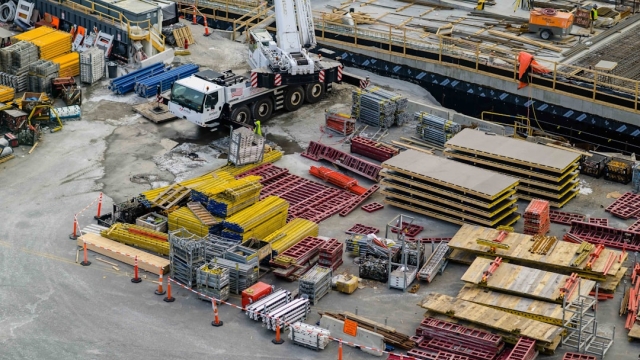As the world increasingly shifts toward sustainable energy sources, the logistics involved in the renewable energy sector have become crucial for the successful implementation of various projects. renewable energy logistics encompasses the planning, execution, and management of supply chains dedicated to delivering renewable energy solutions, particularly in the context of offshore wind projects. These logistics are vital for ensuring that the necessary components and resources are efficiently transported, installed, and maintained, ultimately facilitating the transition to cleaner energy sources.
Supply Chain Management in Renewable Energy
Effective supply chain management is a cornerstone of renewable energy logistics. The unique characteristics of renewable energy projects, especially offshore wind farms, present various challenges that require specialized strategies. The supply chain in this sector often involves multiple stakeholders, including manufacturers, transportation providers, and installation teams. Coordinating these diverse participants is essential to ensure that components such as turbines, blades, and foundations are delivered on time and in optimal condition.
One significant challenge is the variability in demand for renewable energy components, which can fluctuate based on project timelines and market conditions. This uncertainty necessitates a flexible supply chain that can adapt to changing requirements. Additionally, the logistics of sourcing materials for renewable energy projects must consider sustainability and environmental impact, further complicating supply chain management.
Transportation Challenges for Offshore Wind Projects
Transportation is a critical component of renewable energy logistics, particularly for offshore wind projects where large and complex components need to be moved from manufacturing sites to installation locations. The logistics of transporting these components can be intricate, requiring specialized vessels and equipment designed to handle oversized loads.
One of the main challenges in this area is the limited availability of suitable transportation routes. Offshore wind turbine components are typically large and may require heavy-lift vessels to carry them from port to wind farm sites. These vessels must navigate through potentially hazardous maritime conditions, which can affect delivery schedules. Additionally, the logistics team must coordinate the timing of transportation with installation schedules to minimize downtime and ensure that all components are available when needed.
Moreover, the proximity of the manufacturing facilities to the installation sites plays a crucial role in the efficiency of transportation logistics. Longer distances can increase transportation costs and complicate logistics planning, making it essential to select manufacturing locations strategically to optimize the supply chain.
Temporary Power Solutions in Renewable Energy Logistics
To support the logistics operations involved in renewable energy projects, temporary power solutions can play a vital role. These solutions provide essential energy support during the construction and installation phases of offshore wind farms, ensuring that operations run smoothly and without interruption.
For instance, portable generators can be deployed to power tools and equipment on-site, especially in remote locations where access to a permanent power supply may be limited. Additionally, temporary power solutions can facilitate testing and commissioning of equipment before full-scale operations commence, allowing for adjustments and improvements as needed.
Real-world examples of temporary power solutions include the deployment of containerized power systems specifically designed for renewable energy projects. These systems can be quickly set up and tailored to meet the specific energy needs of a project, providing a flexible and efficient way to manage energy demands during critical phases of construction and installation.
Conclusion
In summary, renewable energy logistics is a multifaceted field that plays a crucial role in the successful implementation of renewable energy projects, particularly offshore wind farms. Effective supply chain management, addressing transportation challenges, and leveraging temporary power solutions are all essential components of this logistics framework. By focusing on these areas, stakeholders can enhance their operational efficiency and contribute to a more sustainable energy future. For more insights and support related to renewable energy logistics, consider exploring resources that focus on optimizing logistics strategies in this impactful sector.




